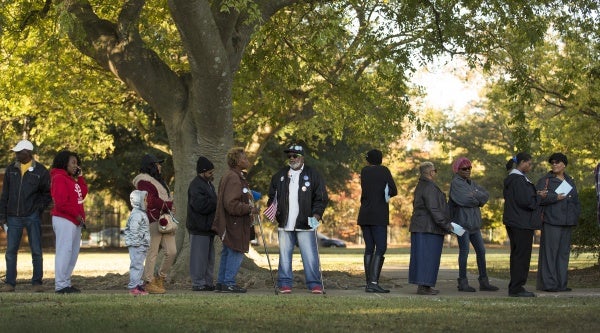Lire la version en français / Hier auf Deutsch lesen
If you have a criminal conviction, should you lose your right to vote?
Public debate on this has blossomed in the United States in recent weeks, for obvious reasons. But, despite the media’s tendency to focus on individual personalities, all the buzz has also exposed a fundamental issue.
The US is out of step with the rest of the world in denying the right to vote to large numbers of citizens based on criminal convictions – what’s known as “felony disenfranchisement.”
A new report examines laws in 136 countries around the world and finds most never, or rarely, use convictions to reject a person’s voting rights. And even among those countries that do, the US is one of the most restrictive, disenfranchising a larger proportion of people.
The US currently bans more than 4.4 million citizens from voting due to felony convictions. That’s equivalent to the entire population of the US state of Kentucky or Oregon.
And, of course, some groups get hit more than others.Racial and ethnic minorities, particularly Black Americans, “continue to be disproportionately arrested, incarcerated and subjected to harsher sentences, including life imprisonment without parole…” So, they are disproportionally prohibited from voting, as well.
One in 19 Black Americans of voting age is disenfranchised. That’s three and a half times as many as non-Black Americans.
Yet again, we see the pervasive poison of white supremacy in US history at the origin of a US failure on fundamental rights.
US laws mandating felony disenfranchisement date back to the end of the Civil War. After formerly enslaved Black men gained the right to vote through the 14th Amendment to the US Constitution, state lawmakers began expanding the list of crimes defined as felonies to target Black people. At the same time, states began revoking voting rights for any felony conviction.
The federal government officially barred some of these policies, known as “Jim Crow laws,” in the Voting Rights Act of 1965, but felony disenfranchisement laws remain in 48 US states.
The current media buzz may all be about one man, but this is not an issue about any single individual. It’s about 4.4 million people being prevented from exercising a fundamental right.
The US is out of step with much of the rest of the world on this – strange for a country that likes to think of itself as a leading democracy.









